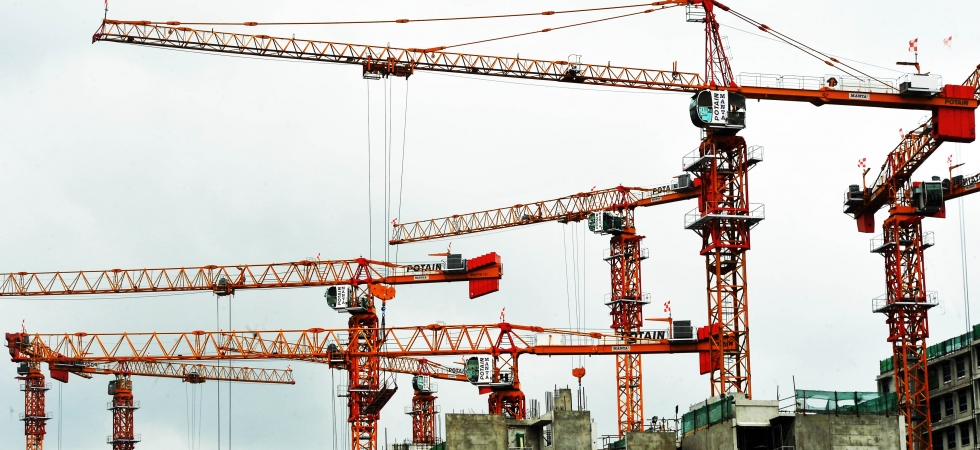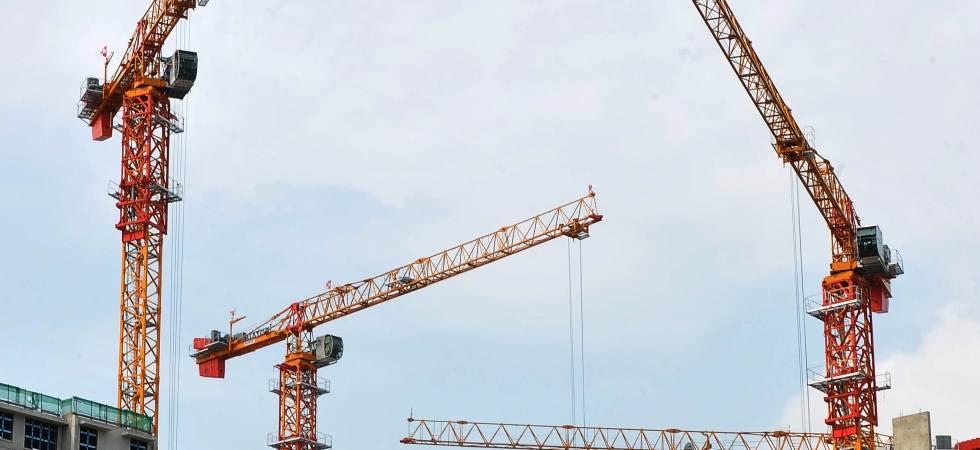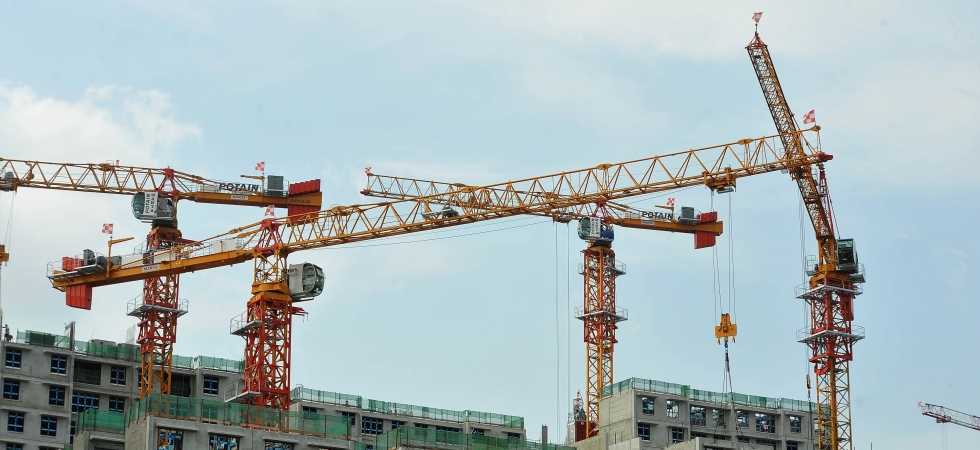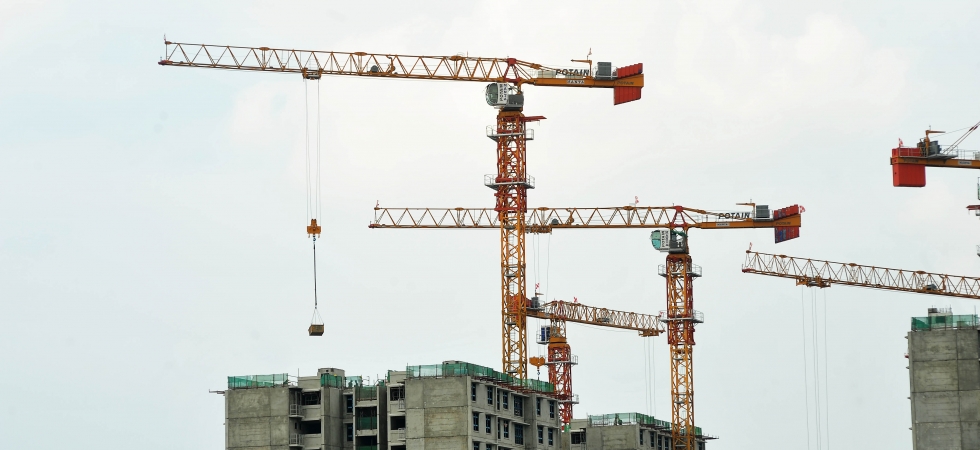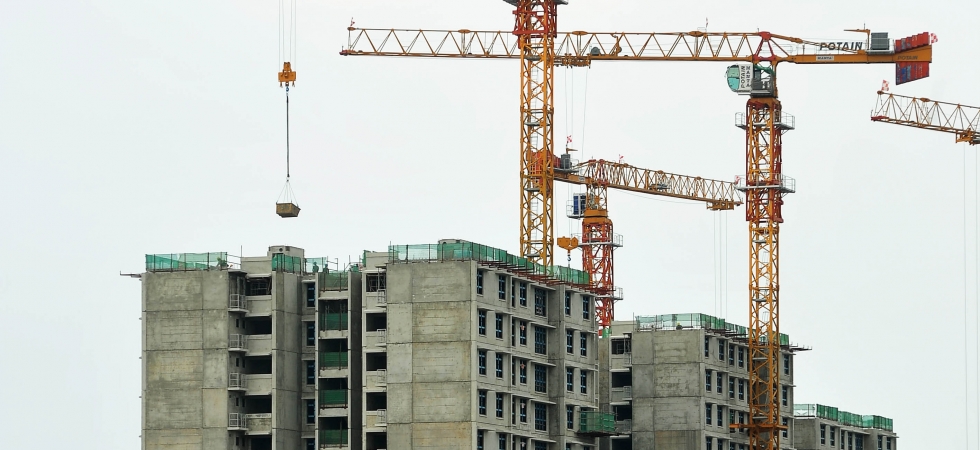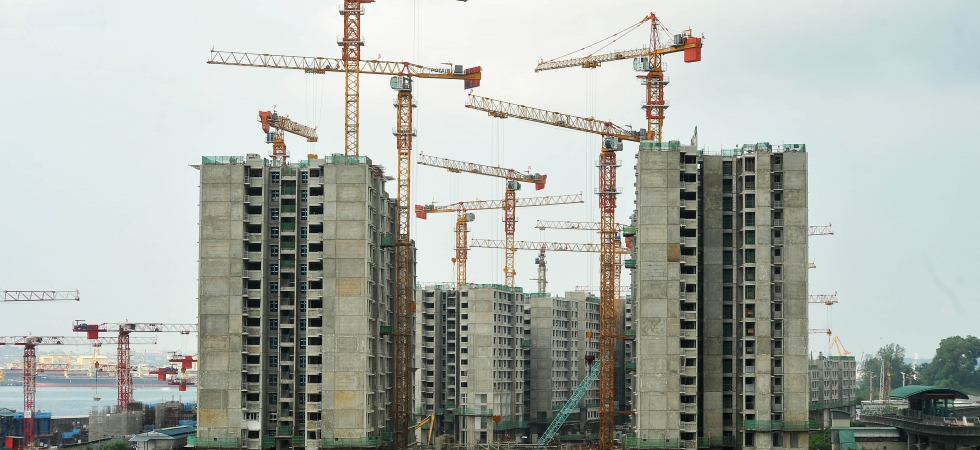
Potain MCT 385 cranes chosen for Singapore’s first ‘smart’ housing block
- The Punggol Northshore Residences are employing 10 Potain MCT 385 tower cranes and two Potain MC 310 tower cranes.
- They are lifting steel reinforcement and precast concrete sections weighing 1 t to 10 t.
- Contractor Ken-Pal chose the cranes for their superior load charts and working heights.
A fleet of 12 Potain tower cranes is working on a pioneering public housing project in Singapore. The development is the country’s first “smart” housing block and incorporates a number of eco-friendly design features such as energy-efficient elevators and waste chutes for recyclable materials.
Contractor Ken-Pal has rented 10 MCT 385 topless tower cranes and two MC 310 tower cranes (one each of the K12 and K16 varieties) from Potain dealer Manta Equipment. With their superior load charts the Potain tower cranes are ideal for tackling the demands of the job site.
The Potain MCT 385 cranes are at the center of the work. With a maximum capacity of 20 t and maximum radius of 75 m the cranes can comfortably lift the heavy precast components and steel reinforcement used in the project. Loads weigh between 1 t and 10 t and the precast concrete blocks come in a range of shapes and sizes forming the walls facades shelters ledges and more in the housing blocks’ design.
Aside from the cranes’ impressive load charts their compact size and ability to work in tight spaces made them a perfect choice said Benjamin Goh marketing manager for Manta Equipment.
“With 12 cranes on site space can get quite congested so the MCT 385’s topless design offers better overlapping and efficiency of operations ” he said. “The compact mast and jib as well as a streamlined counter-jib enhance the cranes’ ability to work in urban projects like the Punggol Northshore Residences.”
Some smart technologies in the new development include a parking area which monitors demand; a pneumatic waste conveyance system which tracks disposal and recycling; sensor-controlled lighting with predictive data analytics to understand human traffic patterns; and fans which automatically adjust to changes in wind speed temperature or numbers of people. When completed in 2020 the project will feature 12 blocks: five of 25 stories two of 24 stories and five of 20 stories.
The MCT 385 was jointly-designed by Manitowoc engineers in Europe and Asia to serve a variety of markets. The model was used previously on another environmentally-focused project helping build a nine-story apartment block in Australia which optimizes solar energy.
